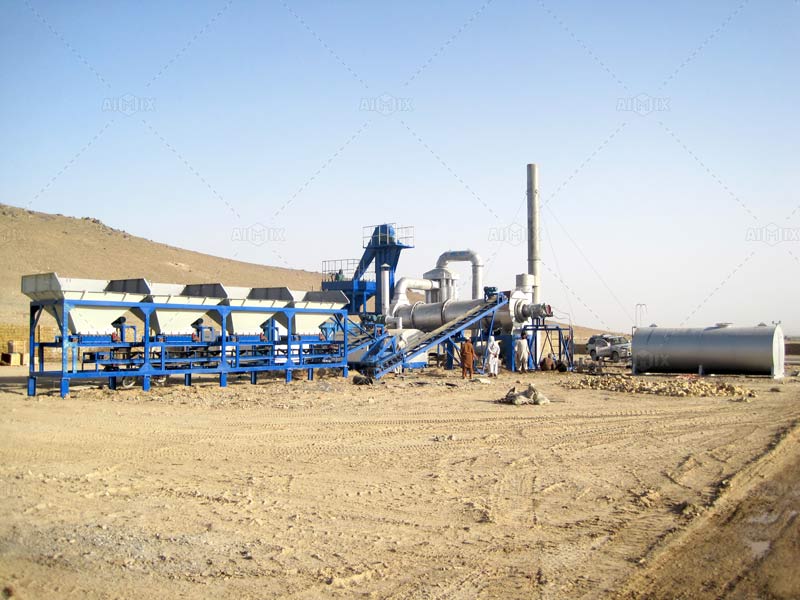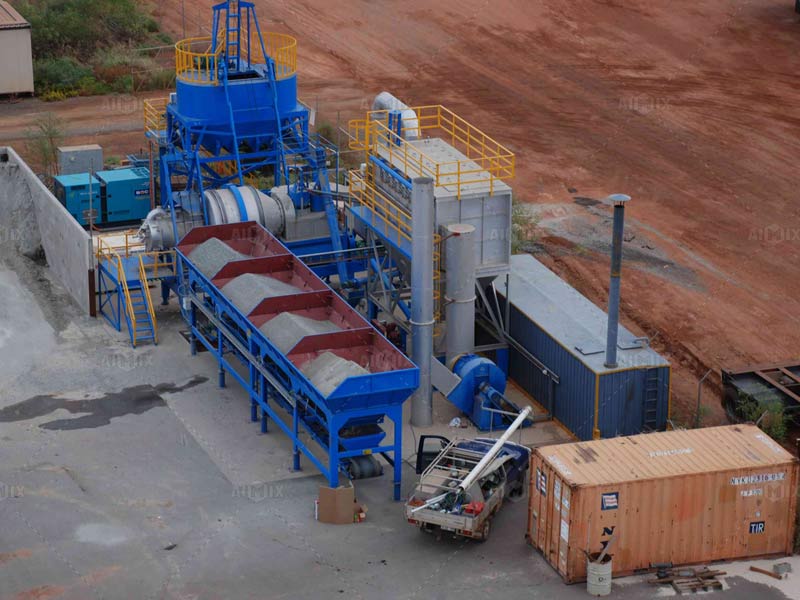In the world of construction, flexibility and efficiency are key, especially when working in remote locations. One of the most important aspects of infrastructure development is the production and application of asphalt. When construction crews are tasked with paving roads, highways, or airstrips in far-flung areas, having access to a reliable asphalt supply is crucial. This is where mobile asphalt plants come into play.
These plants are designed to provide asphalt directly at the jobsite, eliminating the need for long transport routes and ensuring timely completion of projects. This article will explore how mobile asphalt plants(plantas móviles de asfalto) offer versatility and efficiency for remote jobsites, and why they are a valuable investment for any construction operation.

What is a Mobile Asphalt Plant?
A mobile asphalt plant is a portable facility designed to produce asphalt on-site, catering specifically to the demands of jobsites that are distant from traditional asphalt plants. Unlike fixed asphalt plants, mobile units are easily transportable, allowing construction crews to move the plant as needed across various remote locations.
Mobile asphalt plants come equipped with all the components necessary for asphalt production, including mixing drums, bitumen tanks, and control systems. The portability of these plants ensures that asphalt is always available, even in the most isolated areas, providing a significant boost to project timelines and overall efficiency.
Why Mobile Asphalt Plants are Essential for Remote Jobsites
Working in remote locations often presents logistical challenges, particularly when it comes to sourcing materials. Mobile asphalt plants solve many of these issues by bringing the production facility directly to the site. Let’s delve into the key reasons why these plants are essential for remote jobsites.
1. Elimination of Long-Distance Transport
One of the primary benefits of a mobile asphalt plant is that it eliminates the need to transport asphalt from a distant plant to the jobsite. In remote locations, traditional asphalt plants may be hours away, leading to significant delays, increased fuel consumption, and wear and tear on transportation vehicles. By having a mobile plant on-site, construction crews can produce asphalt as needed, reducing transportation costs and saving time.
Additionally, transporting hot asphalt over long distances can lead to temperature loss, which negatively impacts the quality of the material. A mobile asphalt plant ensures that the asphalt is applied while it’s still at the optimal temperature, improving the final product’s durability and performance. You can click this link for more information: https://aimixgrupo.com/planta-asfaltica-movil/
2. On-Demand Production for Greater Flexibility
Remote jobsites often experience unforeseen delays due to weather, terrain challenges, or other logistical issues. A mobile asphalt plant provides the flexibility to produce asphalt on-demand, allowing construction crews to adapt quickly to changing circumstances. This flexibility is particularly valuable in remote areas, where waiting for asphalt deliveries can result in significant downtime.
For example, if a project experiences a delay due to adverse weather, the plant can be paused and restarted as needed, without the risk of material wastage. This on-demand production ensures that asphalt is always fresh and ready for application when conditions permit.
3. Cost-Effectiveness for Large and Small Projects
Mobile asphalt plants are highly versatile, making them suitable for both large-scale infrastructure projects and smaller jobs in remote areas. For instance, a large highway project in a rural area may require a consistent and high-volume supply of asphalt, which a mobile plant can provide efficiently.
On the other hand, smaller projects, such as repairing rural roads or building airstrips in isolated regions, also benefit from mobile plants. Instead of investing in transporting materials from a distant asphalt plant, contractors can use a mobile asphalt plant to produce the exact amount of asphalt needed on-site, minimizing waste and reducing overall project costs.
4. Improved Quality Control and Consistency
One of the most significant advantages of using a mobile asphalt plant on remote jobsites is the ability to maintain tight control over the quality of the asphalt mix. Mobile plants are equipped with advanced control systems that allow operators to monitor and adjust the mix in real time, ensuring that the asphalt meets the exact specifications required for the project.
By producing asphalt on-site, contractors can avoid issues related to material aging or temperature loss during transport. The result is a higher-quality product with better consistency, leading to more durable and long-lasting pavements, which is especially crucial in remote areas where frequent maintenance is not feasible.
Finding the Right Asphalt Plant for Sale
If you’re considering the purchase of a mobile asphalt plant, there are several factors to keep in mind to ensure that you’re making the right investment for your remote jobsites. Here are a few key points to consider when looking for an asphalt plant for sale(planta asfalto en venta):
1. Production Capacity
The production capacity of a mobile asphalt plant is one of the most critical factors to consider. Depending on the scale of your projects, you’ll want to choose a plant that can meet your asphalt production needs without causing delays. For smaller jobsites, a lower-capacity plant may suffice, while larger infrastructure projects will require a plant capable of producing higher volumes of asphalt.
2. Portability and Ease of Setup
The whole point of a mobile asphalt plant is its portability, so it’s essential to choose a model that is easy to transport and set up. Look for plants that feature compact designs, as well as quick assembly and disassembly processes. The ability to move the plant efficiently from one location to another can save valuable time on remote projects.
3. Fuel Efficiency
When working in remote areas, access to fuel can be limited or expensive. As such, choosing an asphalt plant that operates efficiently and minimizes fuel consumption is essential. Many modern mobile asphalt plants are designed with energy-saving technologies, ensuring that your operations remain cost-effective even in isolated locations.
4. Durability and Reliability
Remote jobsites often present harsh environmental conditions, so it’s crucial to invest in an asphalt plant that is durable and reliable. Look for plants made from high-quality materials and designed to withstand extreme temperatures, rough terrain, and long operating hours. A reliable plant will reduce the risk of downtime and costly repairs during critical phases of your project.

Conclusion
Mobile asphalt plants in AIMIX Group China Co., LTD have become an indispensable tool for construction crews working in remote jobsites. Their ability to provide on-site asphalt production eliminates long transport routes, enhances flexibility, reduces costs, and improves the overall quality of the final product. Whether you are working on a large infrastructure project or a smaller rural development, the versatility of mobile asphalt plants ensures that you can complete your work efficiently and with minimal logistical headaches.
When searching for an asphalt plant for sale, keep in mind the specific needs of your remote jobsites, such as production capacity, portability, and fuel efficiency. With the right plant in place, you’ll be able to tackle even the most challenging remote projects with ease.
